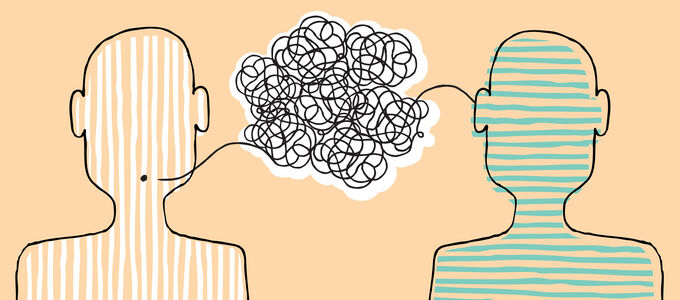Pastoral care (20): Depression—a chameleon that likes to hide

Depression is an illness no one would ever wish to have, but it is one that many people have to battle nevertheless. Pastoral care cannot cure it, but can indeed help alleviate it. But how?
Laypeople often confuse depression with sadness because depressed people are often sad too. However, their sadness is much deeper and darker—seemingly hopeless, in fact. Depression is a disease, not merely a passing emotion. Despondency, lack of interest, exhaustion, and listlessness are just some of its symptoms. Fatigue and tiredness can quickly become the norm. And most importantly: depression does not simply go away, nor does it improve with distraction or encouragement. It pushes people to their limits. At times there is even a danger of suicide!
Just like a chameleon, depressed individuals have a desire to disappear into their surroundings. They try to blend into the background, doing their best not to be noticed. After all, if they tell the wrong person how they are really doing, they might hear things like: “Pull yourself together! Things are not as bad as you think. I know! Everything will turn out fine!” There are other approaches that might help, but this is not one of them! Better to just get out of there.
The mere suggestion that they should deepen their faith, improve their prayer life, or increase their offerings would only serve to overwhelm people who suffer from depression. In fact, this would only serve to make them feel worse. Companionship without well-meant advice is the better motto.
What to do?
How should—or how can—the congregation or the minister care for depressed members? As is so often the case in life, there is no single answer to this question. Medical help is necessary, and psychotherapy is often needed. Encouragement and reliable pastoral care can be of help, but they have clear limits. A minister is not a doctor, nor is he a therapist! He has a different mission to perform:
- he embodies the love of Jesus Christ and His appreciation for the suffering individual, and emphasises that divine care never fails despite all outward appearances, but rather that it always applies to the person as a whole.
- he explains that illness is not a consequence of sin or doubts about one’s faith. It is not doubt that makes a person sick, but rather the sickness itself!
- he brings divine comfort, for example, through the forgiveness of sins and the celebration of Holy Communion.
- he imparts trust, which he does not go on to undermine with amateurish instructions or careless remarks.
The most important thing for all involved in the situation is to listen! Depressed individuals are often also lonely people who need someone to talk to. Incidentally, this is one reason why there is also such a thing as phone-based pastoral care. The feeling that “someone is listening to me” can be immensely enriching and even save lives. Here the listener is like a best friend, at least for the moment. After all, it must be emphasised that such a crisis intervention can only be applied over a certain space of time. It cannot be a lifelong task.
The limits of pastoral care
As is the case for physical illnesses, the contributions of pastoral care must never be overestimated when it comes to the healing of mental illnesses. Emergency pastoral care can be provided by being there for the depressed individual and offering encouragement until professional help is available. Violating boundaries does not help, but rather causes even greater harm. In dealing with such situations, ministers often reach the limits of their training and experience—as well as those of the applicable laws. Given this background, ministers must never contradict the advice of specialists or experts, nor should they ever advise against consulting a doctor. They must not offer any diagnoses of their own, or make the healing of psychological ailments a question of faith.
And then what?
Ultimately everyone is affected: the depressed individuals themselves, their families, their ministers, and even the congregation as a whole. Unbiased acceptance and support for mentally ill members—whose behaviour can at times be stressful—is the ideal to pursue. Acceptance in the congregation is beneficial and helpful in coping with illness. The chameleon does not have to disappear, but is allowed to show itself in all its distinctiveness. It can allow itself to be seen without any fear of being devoured!
To all those who suffer from depression, please be assured: God loves you! We love you! You are part of us!
The next issue of this series on pastoral care will explore a subject that is simply part of the human condition: grief counselling.
Photo: Chawich – stock.adobe.com













